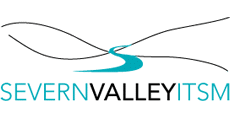Service Management as a practice
- What is a service?
- What is a product?
- What is service management as a practice?
- What is a service relationship?
- The nature of value and value co-creation
- Value: outcomes, costs and risks
- Organizations, service providers, service consumers and other stakeholders
The Service Value System
Understanding the Service Value System and how it adopts other frameworks such as Agile, DevOps and Lean as well as traditional project management. This includes the relevant inputs and outputs. How the five components of the Service Value System interact and work together as a system to enable value creation. Acknowledging the vital role played by opportunity and demand within the system and how they influence value.
Key Concepts
Understanding the key concepts and terminology used within ITIL4® and the Service Value System
Key Principles
- The Four Dimensions of Service Management
- Relevant to, and impact upon, all elements of the Service Value System
- Influence desired outcomes of the organization
- Ensure all dimensions are considered and non-neglected
- Supports a holistic approach to service management
- Collectively are critical to the effective and efficient facilitation of value in the form of products and services
- The Guiding Principles
- Recommendations that guides an organization in all circumstances
- A guiding principle is universal and never ending
- Embodies the core messages of ITIL® and of service management in general
- Supporting successful actions and good decisions
- Governance
- The means by which an organization is directed and controlled
- Accountable at the highest level for the performance and compliance of the organization for policies and external regulations
- Evaluates, directs and monitors all the organizations activities, including those of service management
- The Service Value Chain
- The central element of the Service Value System
- An operating model which outlines the key activities required to respond to demand
- Includes six value chain activities which lead to the creation and management of products and services
- Uses service value streams to carry out a certain task or respond to a particular situation
- Practices
- There are 34 practices
- 14 general management
- 17 service management
- 3 technical management
- A set of organizational resources designed for performing work or accomplish an objective
- Some have been adopted and adapted for service management from general business management
- Some have been developed in service management and ITSM industries
- Some have been adopted from technology management
Continual Improvement
- Used to align and realign the organizations practices and services with changing business needs
- Encourages continual improvement across the organization
- Secures budget and time for continual improvement
- Assessing and prioritizing improvement opportunities
- Includes the continual improvement model
Roles
The roles and their associated responsibilities within service management.


